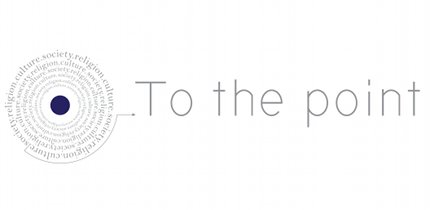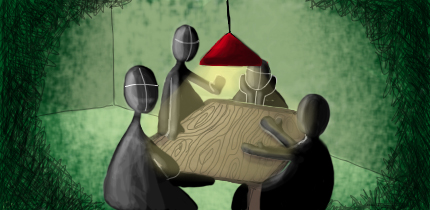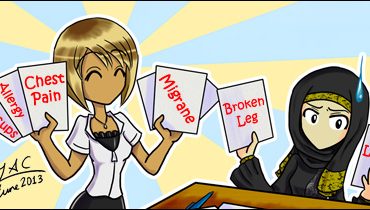By Mohammed Kazim (@MAKazim)

One of the most interesting features of the countries that are located along the coast of the Arabian Gulf, also knows as the Gulf Cooperation Council (GCC) countries, is that they share the same language and religion. This similarity serves as a wonderful foundation for cooperation in various aspects of life, be it at a socio-political level or at an individual level. However, the discovery of oil and the drastic shift in people’s lifestyles due to the sudden emergence of wealth, I believe, led to a shift in people’s mentalities. Rather than focusing on things that united the region as people, factors that differentiate the region were actively sought in an effort to create artificial ranks that satisfy each subgroup’s ego. These ranks are numerous and range from boasting ethnic backgrounds and tribal descent to financial status and even skin color.
The importance of a united society has been recognized since the early days of Islam which emerged in Arabia during a time of severe segregation. Islam united the different sub-groups of people (tribes, ranks, gender, etc) under the flag of monotheism.
“ And hold fast, all together, by the rope which Allah (stretches out for you), and be not divided among yourselves; and remember with gratitude Allah’s favor on you; for ye were enemies and He joined your hearts in love, so that by His Grace, ye became brethren ,,,”
-The Holy Quran (3: 103)
Although the “post-oil segregation” in society has manifested itself in many forms, I believe the strongest impact has been on marriage which is the building block of any society. The introduction of tribalism in marriage (making the pre-requisite for marriage to be an individual of a similar tribal descent or ethnic background) has had the largest impact in segregating people in a region that shares both a language and a religion.
First, the mere disqualification of a potential candidate for marriage due to his/her tribal descent creates subgroups in society. Each subgroup begins to believe in the superiority of their tribe against the other. This disqualification leads to negative sentiment in society towards members of different tribal or ethnic backgrounds. The upbringing of children in this segregation leads to the formation of tribally prejudiced mentalities in the long run and affects the way a society functions. An example of this in modern day within the GCC countries can be witnessed in certain companies that are dominated by employees of a particular tribe. In essence, this creates opportunities for one tribe and bars them from another.
The Prophet Mohammed uttered to Abu Dharr who had called a man “O son of a black woman”: “O Abu Dharr, you are a man who still has Pre-Islamic Ignorance (Jahiliyya)”
– The Prophet Mohammed (Sahih Muslim: Book of Oaths: 4092)
Second, tribalism in society has led to marriage for incorrect reasons. Marriage, as deemed sacred by religion, always had pre-requisites for approval. Things such as a person’s character, religious commitment, and financial capacity would be examined traditionally in order for marriages to proceed. These factors would ensure the security of a person’s son/daughter and the establishment of a family based on principles that would allow for greater benefit of the society. Unfortunately, with tribalism and ethnic profiling, people began focusing entirely on a person’s tribal background. Due to this, families started turning a blind eye towards any flaws in an individual’s characteristics and religious commitment. A person characterized by domestic abuse and alcoholism suddenly began to have more value than a person who was hard-working and God fearing solely for the reasons of his/her ethnic or tribal background.
“….Choose the one who is religiously-committed, may you prosper”
– The Prophet Mohammed (Sahih al-Bukhaari: Book of Marriage: 27)
Last but not least, the above mentioned points, in their illogical and irrational nature, have in many cases led to unhappy marriages, cheating spouses, broken homes, and high divorce rates. Given the nature of the family as the building block of society, any impact on marriage can lead to much greater social phenomena such as unemployment, injustice, terrorism, and oppression of women. All factors that lead to the loss of a society’s integrity and the loss of a society’s value universally.
“If there comes to you a man whose religious commitment and character you approve of, then [give your daughter’s hand to him] in marriage, and if you don’t there will be tribulations in the land and great corruption.”
– The Prophet Mohammed (Sunan Al-Tirmidhi: 1090-1091)
Although a very complex topic and many extreme examples, I hope it is clear from the above that tribalism is a trait of pre-Islamic ignorance and that its impact on marriage and society as a whole is detrimental. Society, wealth, and peer pressure in the GCC countries have begun to alter decisions and introduce characteristics that are not Islamic nor have any basis in the native culture. Wouldn’t it be great if authentic principles were adhered to and segregation was abolished? Wouldn’t it be beneficial if society’s demands were disregarded and Divine demands considered? These decisions are for the region’s inhabitants to make.
“….Be ye not afraid of them, but fear Me, if ye have Faith.”
-The Holy Quran (3: 175)
———-
Here We Start – Interview – Just Another Undergrad – Living Through The Eyes of Art
Scenes From Life – To The Point – Words, Observations, and Ramblings – Spotlights
———-
To receive email notifications on Sail Magazine’s new issues, click here.
———-




Great Article Kazim. Comming from a culture that is hopelessly tribalized and unwilling to accept that it is so, I think your views have merit in a any religion.
Great Artcile Brother. This holds Good for People of All Faiths.
I really hope that someday people will look at each other as individual characters rather than a member of an ethnic group, or a certain tribe. These boundaries that some people create for themselves are what Prophet Mohammed referred to as a “rotten” habit. Great article.
Fantastic article, and very well-worded Kazim.
Tribalism, indeed, continues to plague our societies, as you've rightly mentioned. But what is astonishing is there is little evidence of this plague subsiding.
Let us hope our generation takes the determinative step towards eliminating such unfounded bias when choosing their partners.
You may be told to eat foods that are low in fat or cholesterol. ,
marriage should be a bout content not composition but unfortunately things do not work out like that because others people need to force their beliefs on to others.
The things that you are talking about has been the part of the system that has been designed to live with peace. I think that we should go with the protocol that has been designed.